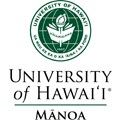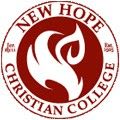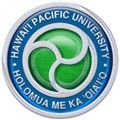Best Hawaii Colleges & Universities

Students can choose from a variety of two- and four-year colleges throughout the Hawaiian Islands, 10 of which are part of the University of Hawaii system. Other higher education options include religious institutions, private liberal arts colleges, online programs, and vocational schools. This page outlines the most important factors to consider when deciding where to earn a certificate or degree, and ranks the best colleges in Hawaii on key criteria. Read on to explore Hawaii colleges, learn more about the true cost of attending, and find helpful planning resources.
Hawaiian College Leaderboard: Rankings
When researching potential colleges in Hawaii, it's important to determine which schools will best fit your needs. Certain criteria must be considered, such as tuition, student-to-teacher ratio, graduation rate and of programs offered. The following section ranks and scores the top colleges in Hawaii based on these factors. Future students can use this comparison to narrow down the search for the right college.
Rankings Methodology
- Located in Hawaiian
- Public or private not-for-profit
- Institutionally accredited
- At least 10 total programs
- Median annual alumni earnings 10 years after entering the college
- In-state tuition and fees for undergraduates
- Student/teacher ratio
- 6-year graduation rate
- % of students receiving institutional financial aid (first-time, full-time undergrads)
- Average amount of institutional aid awarded per student (first-time, full-time undergrads)
- Availability of placement services upon completion
- Availability of academic/career counseling services
- Availability of employment services
- 3-year student cohort loan default rate
Integrated Postsecondary Education Data System (IPEDS): National Center for Education Statistics
Latest 'Final Release' data available as of Fall 2016 College Scorecard: U.S. Department of Education
2-Year Programs
Kauai Community College
Honolulu Community College
Windward Community College
Hawaii Community College
Kapiolani Community College
Leeward Community College
4-Year Programs
University of Hawaii at Manoa
Hawaii Pacific University
Chaminade University of Honolulu
Brigham Young University-Hawaii
University of Hawaii at Hilo
Find & Research Colleges in Hawaii
Many potential students already know what they want to study, but researching colleges can be overwhelming. They can make the process easier by using this search tool to find colleges in Hawaii based on location, school type, tuition, student population, degree level desired and subject of study. The map details college locations and contact information.
College Outreach Programs in Hawaii
The Hawaii Department of Education offers several initiatives and programs designed to help potential college students gain early access to higher education. Many of these programs start early on in the K-12 setting, offering the support students need to graduate high school, transition smoothly to a postsecondary education and successfully enter the workforce. Below are some examples of programs that promote college accessibility and better prepare Hawaii public school students for life beyond high school.
Core to CollegeHawaii is one of 12 states to receive a Core to College Grant, which is funded by the Lumina, William and Flora Hewlett and Bill and Melinda Gates Foundations. The Core to College program has created an alignment and framework between K-12 schools and postsecondary schools allowing them to work together to improve college and career readiness and increase the numbers of Hawaii K-12 students that move on to higher education opportunities. This program follows Common Core state outlines and aims to give students knowledge and skills to transition to college, workforce training, apprenticeships and other postsecondary school options.
Early College High School ProgramThe ECHS Program is an initiative of Hawaii P-20 founded upon a partnership among the Executive Office on Early Learning, the Hawaii Department of Education and the University of Hawaii System. The ECHS program is designed to encourage students to graduate high school and prepare them for college and future careers by providing high-school-based early college courses. The program is supported by Hawaii P-20, GEAR UP Hawaii and the Harold K.L. Castle Foundation; funds will be used to provide financial aid and technical assistance to selected high schools.
Running StartThe Running Start program is a partnership with between the GEAR UP program and the Hawaii Department of Education, along with the participation of several University of Hawaii campuses. The goal of the program is to give Hawaii public high school students a head start on college through a dual-credit program. The dual-credit program allows academically qualified high school students to earn both high school and college credits while still in high school. The credits earned through the Running Start program are accepted at any of the campuses in the University of Hawaii system.
Calculating Costs for Colleges in Hawaii
Tuition cost is related to several factors, including location, type of school, in-state tuition eligibility and financial aid availability. It's helpful to use these factors to compare each Hawaii college's tuition against other programs within the state and nation. The three charts below offer this comparison using tuition and fees, the number of students receiving financial aid and the dollar amount of aid received.
Source: CollegeBoard
Source: IPEDS
Source: IPEDS
* Institutional aid represents grant and scholarship funds directly awarded by a postsecondary institution.
* Financial aid data represents 4-year public and private nonprofit schools only.
Colleges in Hawaii With Lowest Net Price
The cost of tuition can vary depending on factors such as location, type of school and financial aid. Comparing annual net price (the cost of attendance minus gift financial aid received) among colleges in Hawaii can ease the decision-making process. Below is a ranking of the six most affordable colleges in Hawaii and how their costs compare to the national average.
- 1.
 University of Hawaii-West Oahu
University of Hawaii-West Oahu
$6,118 - 2.
 University of Hawaii Maui College
University of Hawaii Maui College
$6,706 - 3.
 University of Hawaii at Hilo
University of Hawaii at Hilo
$9,749
- 4.
 Brigham Young University-Hawaii
Brigham Young University-Hawaii
$10,441 - 5.
 University of Hawaii at Manoa
University of Hawaii at Manoa
$11,102 - 6.
 New Hope Christian College-Honolulu
New Hope Christian College-Honolulu
$14,601
Hawaii College Net Price vs. National Average
Average
Annual Net Price
Source: College Scorecard
Note: Rankings/data represent 4-year public and private nonprofit schools only.
Hawaii Colleges Featuring Top Alumni Salaries
When researching colleges in Hawaii, it pays to take a look at which school's college graduates earn the most in the workforce. The following section shows the ranking of the top six schools with the highest-paid alumni 10 years after graduation, and compares those earnings to the national average.
- 1.
 University of Hawaii at Manoa
University of Hawaii at Manoa
$44,300 - 2.
 Hawaii Pacific University
Hawaii Pacific University
$43,400 - 3.
 University of Hawaii-West Oahu
University of Hawaii-West Oahu
$42,300
- 4.
 Brigham Young University-Hawaii
Brigham Young University-Hawaii
$39,400 - 5.
 Chaminade University of Honolulu
Chaminade University of Honolulu
$37,300 - 6.
 University of Hawaii at Hilo
University of Hawaii at Hilo
$34,500
Hawaii Alumni Salaries vs. National Average
Annual Median Earnings
10 Years After Entering College
Source: College Scorecard
Note: Rankings/data represent 4-year public and private nonprofit schools only.
Six Hawaii Colleges With Lowest Student Loan Debt
When deciding on colleges, financial issues such as alumni student debt must be considered. The following section shows the top six colleges in Hawaii that produce graduates with the least amount of college-related debt, and how they stack up against the national average.
- 1.
 Brigham Young University-Hawaii
Brigham Young University-Hawaii
$10,000 - 2.
 University of Hawaii-West Oahu
University of Hawaii-West Oahu
$12,500 - 3.
 University of Hawaii Maui College
University of Hawaii Maui College
$13,425
- 4.
 University of Hawaii at Hilo
University of Hawaii at Hilo
$19,264 - 5.
 University of Hawaii at Manoa
University of Hawaii at Manoa
$19,509 - 6.
 Chaminade University of Honolulu
Chaminade University of Honolulu
$24,082
Hawaii College Grad Debt Vs. National Average
Median Federal Student
Loan Debt After Graduation
Source: College Scorecard
Note: Rankings/data represent 4-year public and private nonprofit schools only.
Analyzing the Cost of Living in Hawaii
The price of one's education does not end with a college's final tab: one must account for living expenses, too. To get a better idea of what the cost of living in Hawaii is like, take a look at the following section, which spotlights the largest metro areas in Hawaii and the state as a whole.
| area | composite index | housing | groceries | utilities | transportation | health care | misc. |
|---|---|---|---|---|---|---|---|
| Statewide Average | 169% | 224% | 159% | 222% | 136% | 110% | 127% |
| Hilo | 148% | 144% | 158% | 229% | 137% | 112% | 131% |
| Honolulu | 189% | 304% | 160% | 216% | 135% | 107% | 124% |
Source: The Council for Community and Economic Research
The Importance of Accreditation for Colleges in Hawaii
Accredited colleges must meet quality standards - as determined by a recognized accrediting organization - in areas such as operations, curriculum and faculty. In addition to ensuring quality, choosing an accredited school is important to students because it can affect several other aspects of their education. For example, one must often attend an accredited school to be eligible for credit transfers, graduate programs, financial aid and professional licensure. Accreditation is given at the institutional or programmatic level. Hawaii colleges are regionally accredited by the Western Association of Schools & Colleges (WASC). Below are examples of accredited, discipline-specific programs within Hawaii colleges.
- The National Council for Accreditation of Teacher Education (NCATE): The NCATE accredits the College of Education in the University of Hawaii at Manoa and the Division of Education in the University of Hawaii-West Oahu.
- Accrediting Commission for Pharmacy Education (ACPE): The University of Hawaii at Hilo's Doctor of Pharmacy program (within the Daniel K. Inouye College of Pharmacy) is accredited by the ACPE.
Prominent College Cities in Hawaii
Hilo
Hilo is a growing college town located on the island of Hawaii, with a laid back, small town feel. Hilo is in one of the most ethnically diverse counties in the country, with an equally diverse natural landscape. The University of Hawaii-Hilo plays a prominent role in its community, as does Hawaii Community College. Both colleges are part of the University of Hawaii system. These two institutions are smaller in size compared to other public colleges in Hawaii, giving students less-crowded classes, a more intimate feel and the slower pace of life that Hilo offers.
| College Name | School Type | Annual Net Price | Annual Median Earnings 10 Years After College Only includes former students who received federal financial aid. |
|---|---|---|---|
 University of Hawaii at Hilo University of Hawaii at Hilo |
Private not-for-profit | $13,070 | $57,400 |
| UH Hilo is a small, public four-year liberal arts university with about 4,000 students. UH Hilo offers a wide range of degree programs - some traditional and others specifically related to the community, such as the Hawaiian Language, Culture and Education degree. Students are encouraged to connect with nature and culture, and have many opportunities for learning through research, internships and community outreach. Some popular majors here include health professions, social sciences and psychology. | |||
 Hawaii Community College Hawaii Community College |
Public | $7,307 | $30,800 |
| Hawaii Community College is a public two-year community college with just over 3,000 students. Hawaii CC has several strong vocational and technical programs designed to get students into the work force or transferred to a four-year institution. Hawaii CC is committed to and embraces the Hawaiian culture and environment, and offers degrees in such subjects such as Hawaiian Life Styles and Tropical Ecosystem and Agroforestry Management. | |||
Honolulu
As the largest city in the Hawaiian Islands, Honolulu is a busy cultural, financial and tourist hub. Although it is the main metro area of all the islands, Honolulu is surrounded by mountains, beaches and several quaint towns, providing an escape from the hustle and bustle when needed. Honolulu is home to most of Hawaii's higher education institutions, ranging from a high-ranking public university to a college of traditional Chinese medicine. Other options include a two-year private liberal arts school, seminary and Christian colleges, a private four-year university, a public four-year university, two community colleges, vocational schools and even a golf academy.
| College Name | School Type | Annual Net Price | Annual Median Earnings 10 Years After College Only includes former students who received federal financial aid. |
|---|---|---|---|
 Hawaii Pacific University Hawaii Pacific University |
Private not-for-profit | $18,621 | $42,600 |
| Hawaii Pacific University is a private, non-profit liberal arts university with about 7,000 students. HPU's main campus is in downtown Honolulu, with a more rural campus located just a few miles away in Kaneohe. HPU also maintains a presence on several military bases on Oahu and houses the Oceanic Institute, which is a major research facility providing many hands-on learning opportunities and internships for HPU students. The online MBA program is well known, making it one of the most popular majors there, along with nursing, psychology, and biological and biomedical sciences. | |||
 University of Hawaii at Manoa University of Hawaii at Manoa |
Public | $14,162 | $42,300 |
| The University at Manoa is a public university serving almost 20,000 students in the Manoa Valley, just outside downtown Honolulu. It is the University of Hawaii system's flagship institution, offering almost 300 degrees and certificates. Since UH at Manoa is a land-sea-space grant institution, it is involved in several notable research projects. The University is known for its Asian studies, earth science and marine biology programs while its business, social sciences and health professions are among its most popular. | |||
 Chaminade University of Honolulu Chaminade University of Honolulu |
Private not-for-profit | $20,191 | $44,700 |
| Chaminade is a private, Catholic liberal arts university located in the Kaimuki neighborhood, close to downtown and Waikiki. Chaminade has about 2,800 students and a small student-to-teacher ratio of about 11:1. The university offers evening and online classes, a campus ministry, counseling and health plans for students. Chaminade encourages student-community involvement and offers several service-learning and study abroad opportunities. Popular majors here include criminal justice/safety studies, nursing, psychology and education. | |||
Source: College Scorecard
Learn More About Colleges in Hawaii
Below is a list of helpful resources for potential and current students deciding on colleges in Hawaii.
Hawaii College Application and Exploration Season (CAES)This is part of the American College Application Campaign (ACAC) initiative. The program helps students plan for college and holds events that encourage students to fill out FAFSA forms and college applications.
Hawaii Community FoundationThe HCF provides educational grants and funding, including college scholarships to Hawaii residents.
Hawaii/Pacific Basin AHEC (Area Health Education Center)|This website has a section for students of all ages considering a health care career. It offers details about programs and resources available regarding health care careers, training, education and financial aid.
Kamehameha SchoolsKamehameha Schools is a community outreach organization that connects students and adults to educational resources. Aspiring college students may be directed to college programs, services and scholarship opportunities.
Step Up HawaiiStep Up Hawaii is a Hawaii P-20 Partnerships for Education initiative that offers career exploration, college planning, early college opportunities, a college match feature and other helpful resources.
VetSuccess on Campus (VSOC)A VSCO counselor is on campus (Hawaii Pacific University, Leeward Community College and the University of Hawaii at Manoa) to help veterans and servicemembers transition to college life, complete their degrees and segue into the civilian workforce.
LearnHowToBecome.com is an advertising-supported site. Featured or trusted partner programs and all school search, finder, or match results are for schools that compensate us. This compensation does not influence our school rankings, resource guides, or other editorially-independent information published on this site.
View the most relevant programs for your interests and compare them by tuition, acceptance rate, and other factors important to you.